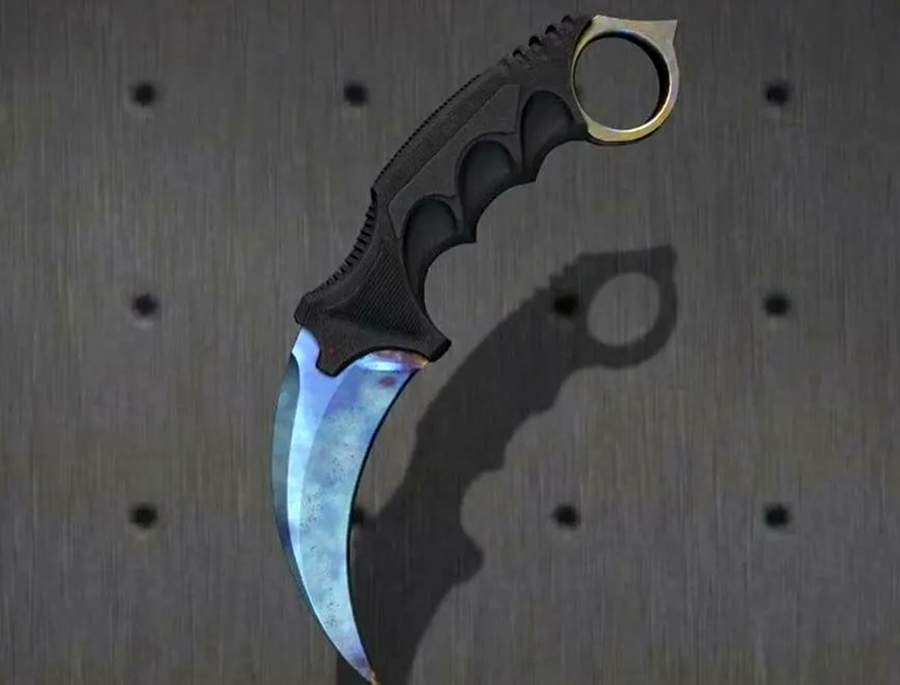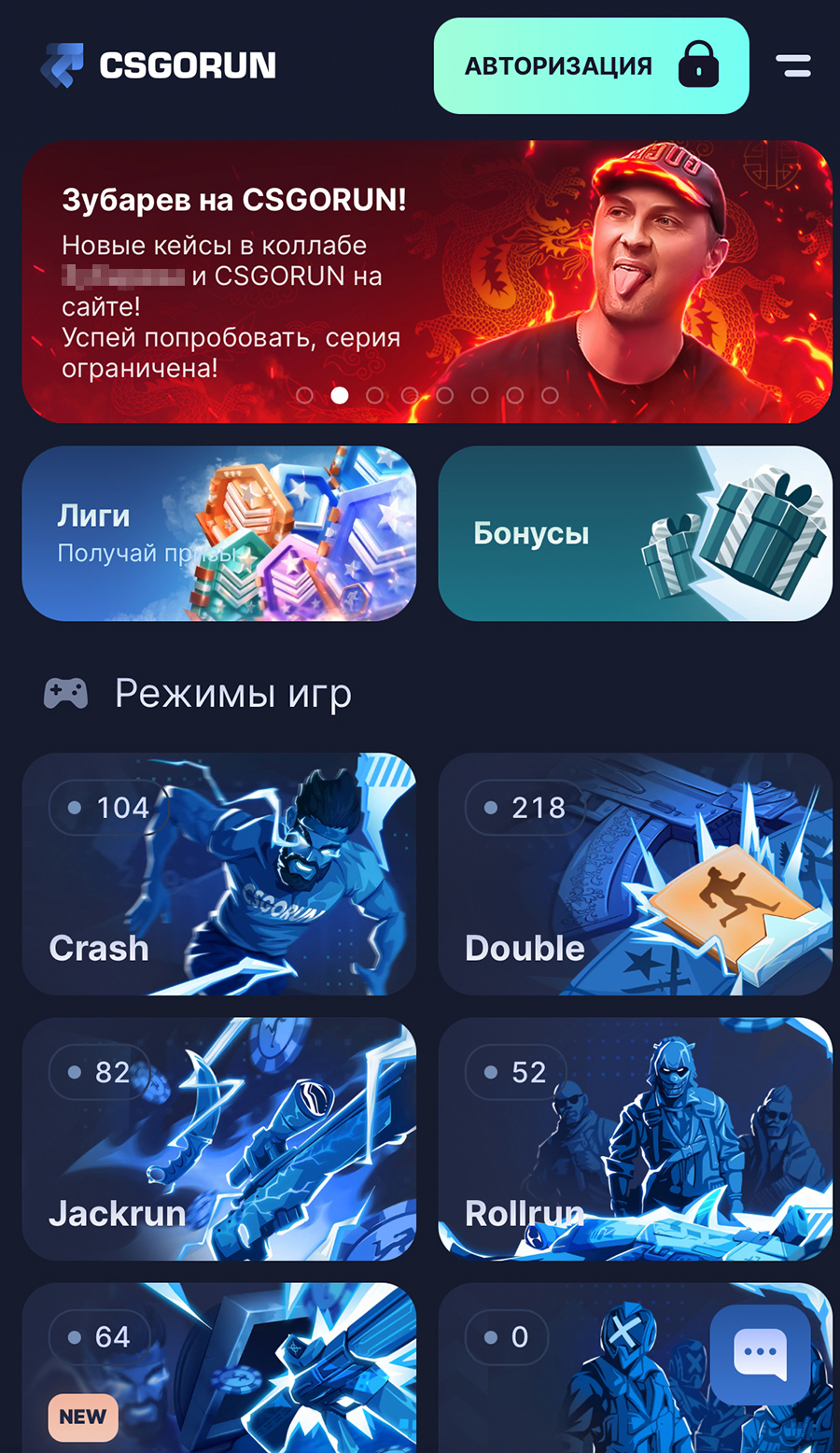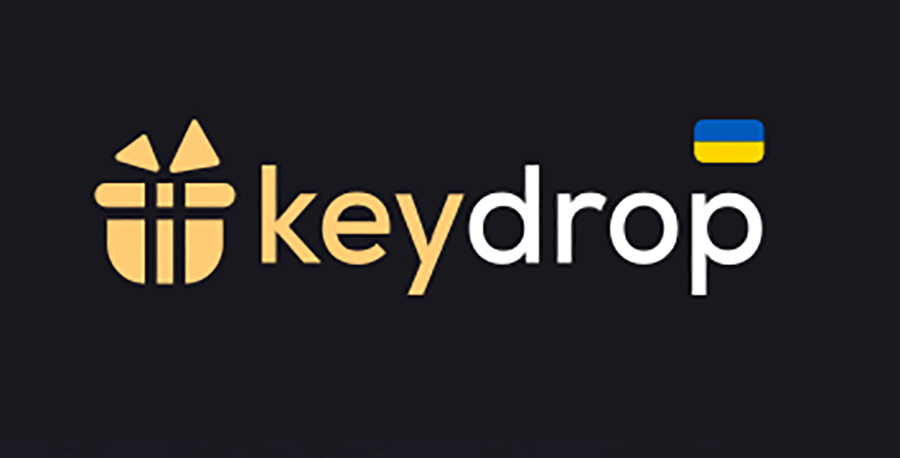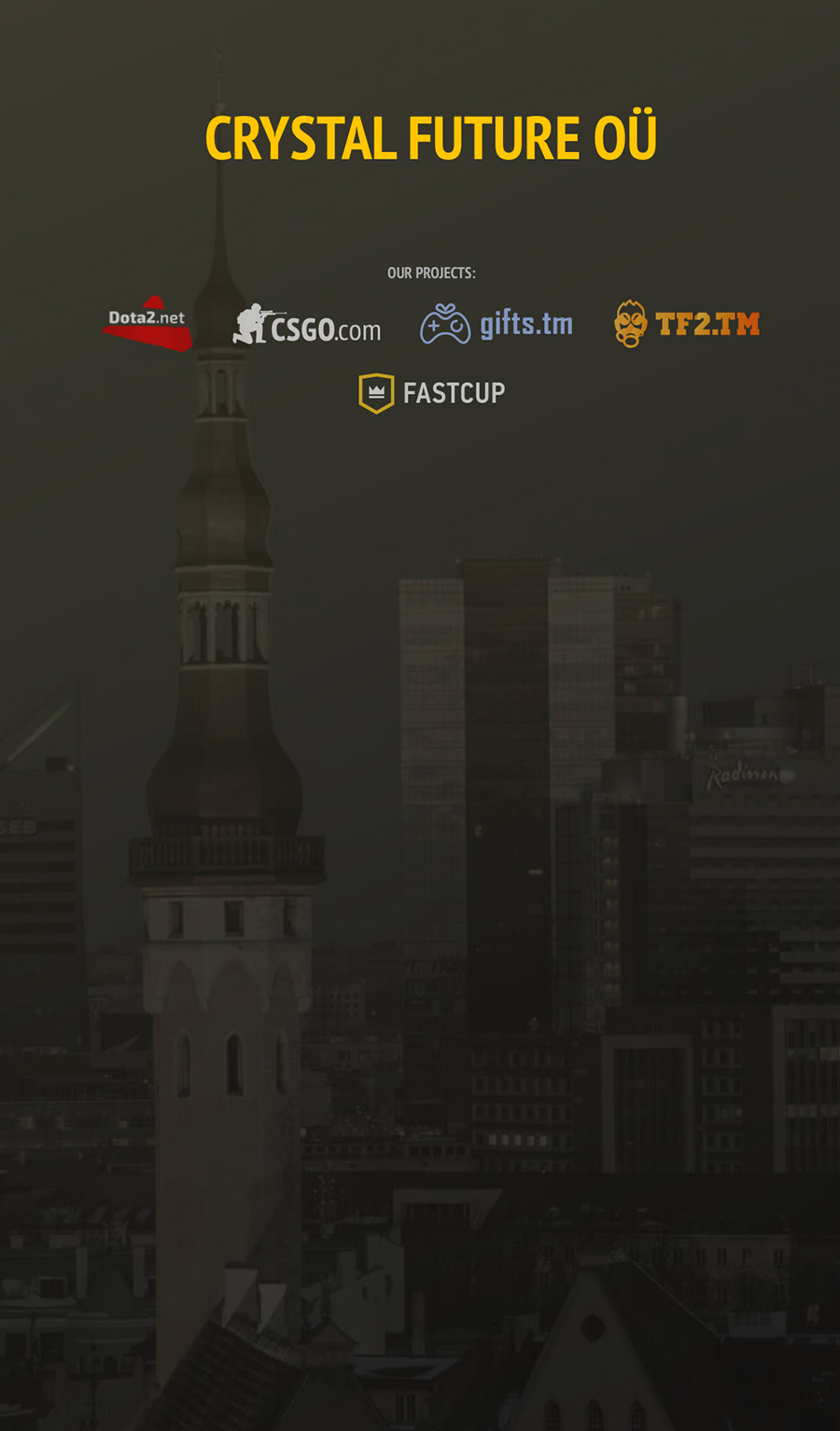Bad bet: Who makes money from the excitement of Counter-Strike players
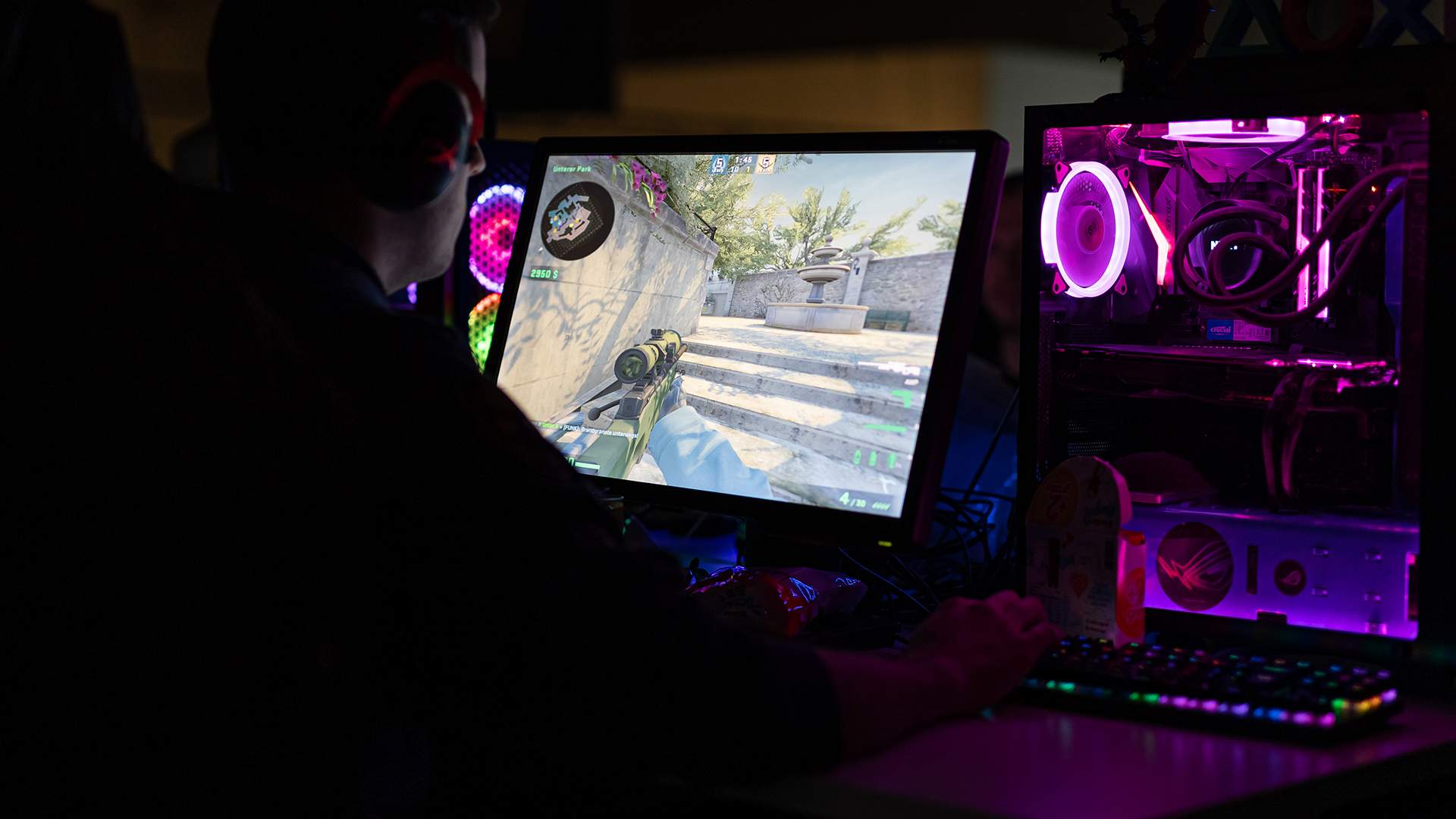
In the 25 years of its existence, the popular online shooter Counter-Strike has gained not only a giant army of players around the world, but also a parallel gambling industry. Collectible samples of game items sell for tens of thousands of dollars, but enterprising businessmen have also come up with the idea of betting them on roulette. As a result, illegal online casinos have appeared, a significant part of the audience of which are minors. During the investigation, Izvestia identified the likely beneficiaries of this industry. Some of them are from Ukraine or simply support the Ukrainian Armed Forces. At the same time, in Russia, the turnover of gaming items, as well as the "internal" economy of computer games in general, is not yet regulated in any way, which only contributes to its involvement in the illegal field.
A million-dollar "knife"
A trash streamer from Belarus, Mellstroi (real name Andrey Burim), known for his aggressive gambling advertising, confessed in an interview how he started his career as a ludoman as a teenager.
— The outcome of the "ludka" (gambling addiction. — Ed.) there is always one, and he is [bad] — zero on the balance sheet and huge debts. My story started with roulette with CS skins:GO: People bet their items from the game, and the winner takes the pool. Once I got a case for $0.6, and I decided to try it, put it on, and at the last moment some player "flooded" the M4A1-S "Knight", which cost about $360. When the roulette started spinning, only his "avatar" was spinning, but then it stopped on me. I couldn't believe it, I jumped up in my chair," Burim said.
There are a large number of private stories on the Internet, mostly from minors, in which teenagers admit to being addicted to ludomania after playing in a case casino. For many, "case study" becomes the starting point for further immersion into the world of "adult" gambling.
A loot box is a virtual "box" that users can buy or receive in a video game to randomly receive game items.
In the Counter Strike (CS) game, released in 2000, the loot box mechanic for buying in-game items was introduced in 2013. The super-popular online shooter from the American company Valve invites players to participate in battles for the teams of "special forces" and "terrorists". The game consistently has more than a million simultaneous users on its servers. By 2022, Russia occupied the first place in terms of the number of CS players, according to data from the Leetify gaming portal.
Loot boxes in CS are called cases. Visually, they are stylized as weapon boxes. Valve earns at least $1 billion a year from selling cases, and the entire market for CS skins reaches $4.5 billion annually.
Bright skins do not give advantages to players, but they are boasted and collected. They exchange game items through the Steam platform (the Steam Community community portal is listed in the Roskomnadzor register of prohibited sites), also owned by CS developers. You cannot withdraw funds from Steam directly. You can only spend them on games inside the platform. But third-party websites are used to cash out the skins. The price range ranges from a couple of rubles to a record $1.5 million for a rare sample of the knife's appearance.
A whole market has emerged around the exchange and trading of skins, with exchanges, forums, schemes, analytics, auctions, and investment advice, making Steam more like a stock market. There are those who don't play CS, but only open loot boxes and resell skins. There are even "farms" — networks of bots that independently "extract" free cases in the game. It is worth noting that if Valve closes CS, all virtual valuables will be irretrievably lost.
According to researchers, the average age of buyers in skin stores is 12-17 years old, while professional traders are usually older — they range from 18 to 24 years old.
Spinning the cases
Case discovery sites have turned into online casinos where skins become "chips" or "bets." Roulette, crash games, and betting mechanics are used, and there is even an option similar to blackjack, where the player who gets the more expensive skin from the case at stake wins.
Some sites explicitly say that they are gambling sites, while others disguise themselves as "social casinos", although there is quite real money and valuable skins circulating there. They build their business through exchange and resale — the player can withdraw the skins or money they have won.
Teenagers easily get into such case casinos: there is no age verification, just check the box "I am 18". If minors are not interesting for ordinary casinos because of their low solvency, then valuable skins are often found among young gamers.
One of the largest case casinos, GGDrop, is owned by Ukrainian entrepreneur Yevhen Yakimchuk. The site is constantly changing the contact details of the legal entity, at some point the British ITS FAILS LTD was listed as its representative. Its name is also found in arbitration disputes around the GGDrop domain. In the register of British companies, Evgeny Yakimchuk is listed as the beneficiary of ITS FAILS LTD.
Another notable player in the market of gambling sites on CS skins is CSGORun. It is linked to the sites LootRun (casino slots), Skinsly (skin exchange) and Goodasly (a service for depositing and withdrawing money between these sites). They are managed by Blackhole N.V. (Curaçao). CSGORun cooperates with Russian legal bookmakers and media streamers for advertising, and also offers partner programs.
Blackhole N.V. posts its vacancies, in particular, on Ukrainian recruitment services, and describes itself as the market leader of CSGO Gambling in the CIS and the developer of online casinos. To replenish the balance on CSGORun and similar sites, in addition to completely legal methods, illegal acquiring is also available through FKWallet (Free Checkout) and the Dmarket service (which openly supports the APU).
Goodasly specifies Goudeamus LLC for contacts in Russia. According to its director Oleg Vorobyov, he learned about this only from journalists and has nothing to do with the platform. In Europe, the brand's legal entity is the Estonian company Slimtravel OU, its founders are Vlastimil Sokah, a citizen of Ukraine, and Vitaly Ustinov, an Estonian citizen. Apparently, Sokach is a professional nominee director and helps in the registration of companies in the Czech Republic and other EU countries.
CSGORun is not the only resource providing support to Ukraine. For example, the Key-Drop website repainted the logo in blue and yellow colors at the beginning of its campaign and published appeals in support of Ukraine. Key-Drop eventually removed these labels, but they have been preserved on some old pages. At the same time, some Russian services are the payment partners of the resource.
Estonian gambling with Russian roots
One of the key companies in the Russian segment of case gaming is Onmun LLC. On her website, she positions herself as a software developer and reports that she is leading projects, including payment instruments, trading platforms, gaming portals, entertainment websites, mobile applications and games.
According to the RusProfile service, the company was registered in 2011, the founders are entrepreneurs Svyatoslav Lobanov and Dmitry Kuskov. The peak profit figure fell in 2022 and amounted to 174 million rubles, since then it has been falling, and in 2024 Onmun earned 114 million rubles.
The company has a domain registered teamspirit.ru this is confirmed by data from WhoIs services. This is the website of the eponymous esports team Team Spirit, created in 2015. The website was also registered in the same year. In 2022, he moved to the domain teamspirit.gg (currently available via both links). In March of the same year, the team itself moved from Russia to Serbia, "for ethical and practical reasons due to the situation in Ukraine."
"The events taking place in the world are forcing us to abandon plans to expand the infrastructure in Moscow and focus on relocating the club's employees and teams to Belgrade," the team's website reported.
Ethics did not prevent the team from signing a partnership agreement with the illegal online casino 1xBet just a couple of months after moving to Europe.
The team's partner list also includes a website. CSGO.net , owned by Cyberhab LLC, owned by the same Lobanov and Kuskov. Onmun and Cyberhab operate at least several online casinos - ForceDrop, Easydrop and Mycsgo, as well as the Skinpay service (working with the pro—Ukrainian casino Key-Drop).
At first, the Estonian Crystal Future OU was indicated on these resources as a legal entity (the beneficiary is the Cypriot Theodoros Kapsis), then the Cypriot SENEVEXITI TECH LTD was added as an alternative, and recently the Hong Kong Saturia Limited has been increasingly indicated. The Crystal Future business card contains the same projects as the portfolio on the website. CSGO.net the Cyberhab company.
How much do case casinos earn?
In 2021, Forbes, citing market participants, estimated the turnover CSGO.net in the region of $1 million per day. The service's commission is unknown, but most likely only about 10-12% (similar to Steam). Another 2% (but more often than that) have companies offering acquiring services (including illegal ones). The skin market has only grown in recent years, but even with the old figures, the site's revenue turns out to be at least $3 million per month, or $36 million per year — 2.8 billion rubles, even at the current low exchange rate. And there are more than a dozen such large players in the market.
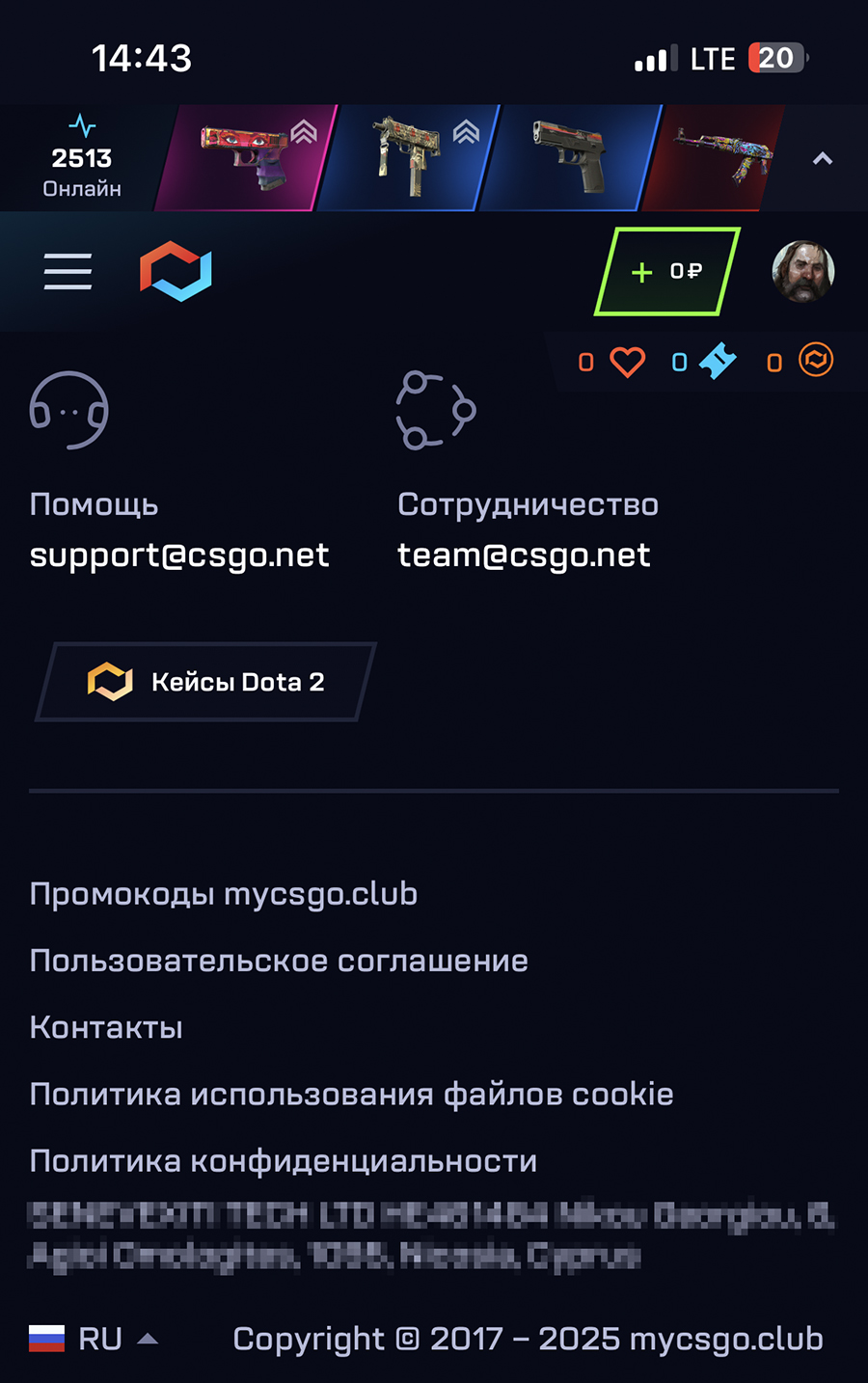
The income of dubious companies directly from case casinos is even more difficult to estimate. According to an anonymous assessment by one of the market experts, the average for online gambling is 30% GGR (gross income from the sum of all bets placed). Online casino attendance exceeds that of legal offline casinos by about nine times. According to the analytical company Better, 12% of Russians suffer from ludomania in severe and very severe forms. Despite their apparent frivolity, case casino sites bring in millions of dollars a year to their creators and increase the number of ludomaniacs.
Legal regulation
In some countries, the mechanics of loot boxes have long been equated with gambling. Belgium became the first country to completely ban their use in 2018. Her example was followed in the same year by the Netherlands, where the national gambling regulator published a legal opinion that games that sell loot boxes violate gambling law. As a result, many developers have decided to make loot boxes inaccessible to citizens of this country.
Russia has not yet seriously considered regulating this area. At one time, the Main Radio Frequency Center (a structure of Roskomnadzor), in its study on the prospects for regulating the gaming industry and its content, proposed legally defining some concepts from video games, including loot boxes, but this initiative did not receive legal expression.
Maxim Zverev, a lawyer specializing in intellectual property rights, told Izvestia that case roulettes are objectively gambling games, but they are out of regulation in Russian legislation for at least two reasons.
The first is that a game artifact is not the property of the player, unless it is spelled out in the game's license agreement (most often the opposite is true — the game and all its contents belong entirely to the studio or publisher, and the player only acquires it for temporary use), or the user created it as a result of creative activity and he had intellectual the rights to this artifact.
Secondly— according to Russian laws, only money can be a bet, therefore, skins are not considered a bet, despite the fact that they objectively have material value due to the prevailing market.
— Case roulette has all the criteria for gambling: betting, risk, agreement between the organizer and the participants, the game is played according to the rules of gambling. But since the game artifacts do not belong to the player and are not considered money, it turns out that there is no real bet in the game from the point of view of the law. To do this, it is necessary to amend the law on gambling — that "other property or rights" are recognized as a bet, and not just money, — Maxim Zverev believes.
The expert believes that if explanations about in-game items appeared in Russian law, and judicial practice and the position of game copyright holders would follow the path of recognizing user rights, this would be a winning situation for everyone.: for the copyright holders of the games, the players themselves and the state. Copyright holders could officially charge a commission for the exchange and sale of artifacts, players would receive legal protection in case of disputes, and the state would be able to collect taxes from this.
Roskomnadzor's position
Roskomnadzor, in response to a request from Izvestia, said it was restricting access to illegal gambling information based on court decisions and requirements from the Federal Tax Service.
"After the agency receives such a basis, Roskomnadzor enters the website or webpage into the Unified Register of Prohibited Information and sends a notification to the owner of the hosting and Internet resource demanding that the prohibited content be removed. By law, the owner of a hosting or Internet resource must delete it within 24 hours. If the requirement is not met, Roskomnadzor restricts access to the resource," the agency said.
According to the RCN, in total, based on the decisions of the Federal Tax Service of Russia and court decisions on the subject of "illegal gambling and lotteries", access is restricted or illegal information has been deleted from 897 thousand sites or Internet pages, including from the beginning of 2025 - from 91.3 thousand.
For failure to remove illegal content, owners of large foreign Internet sites are systematically brought to administrative responsibility under Article 13.41 of the Administrative Code of the Russian Federation. Since 2021, the total amount of fines is more than 35.4 billion rubles, of which 22 million rubles are for failure to delete information about the organization of gambling.
The RCN could not clarify the information on the specific resources indicated in this material.
The Federal Tax Service, which also oversees the organization and conduct of gambling, did not provide comments on Izvestia's questions at the time of publication.
Переведено сервисом «Яндекс Переводчик»


